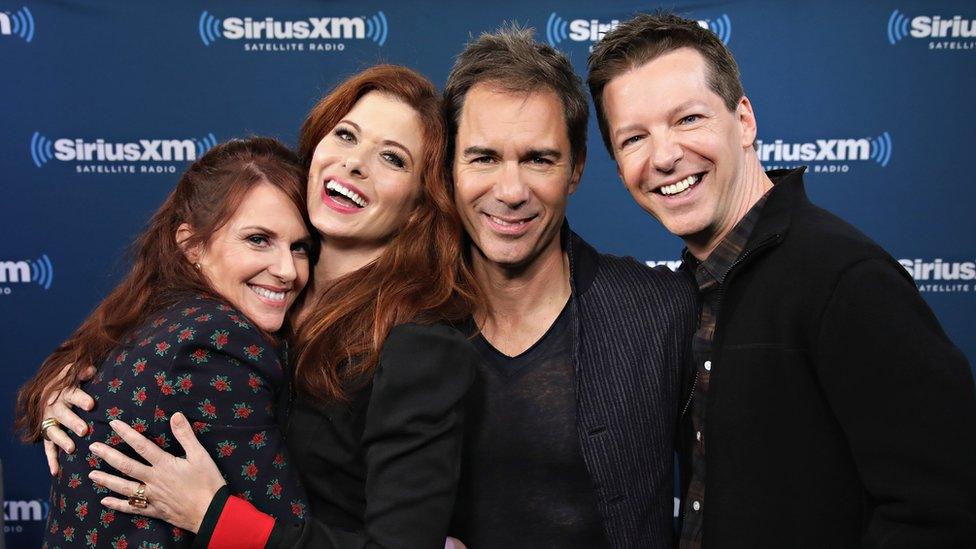Still Friends? The trouble with old sitcoms
- Published
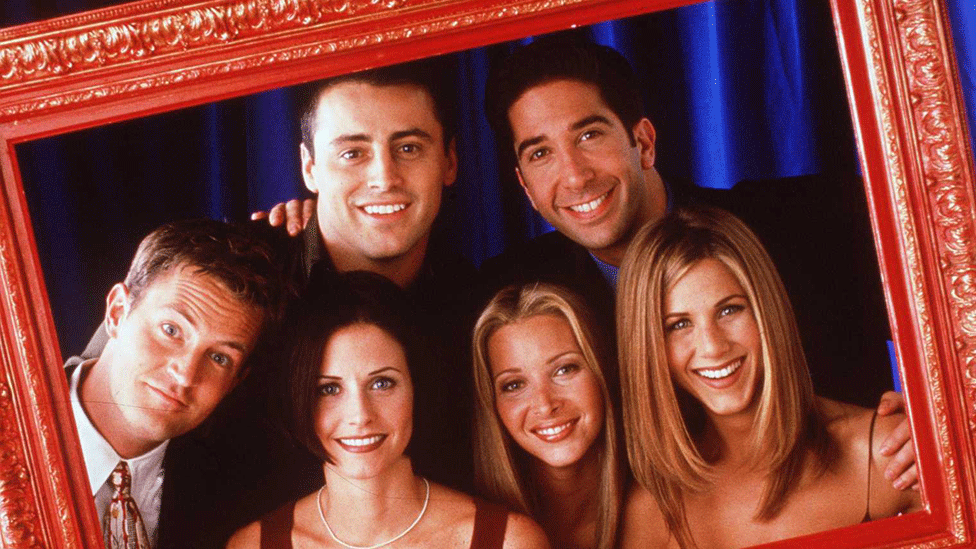
The show ran from 1994 to 2004
Ahh, Friends. The US sitcom that took over the world.
Millennials may look back fondly to the heady days of the ultimate 20-something Manhattan lifestyle enjoyed by our favourite flatmates - Monica, Ross, Chandler, Joey, Rachel and Phoebe.
But nearly a quarter of a century - yikes! - since it began, a new generation of fans are discovering the hit show for the first time on Netflix.
And some of them are clearly finding it a bit uncomfortable.
Allow X content?
This article contains content provided by X. We ask for your permission before anything is loaded, as they may be using cookies and other technologies. You may want to read X’s cookie policy, external and privacy policy, external before accepting. To view this content choose ‘accept and continue’.
Another found herself not enjoying the show as much second time around.
Allow X content?
This article contains content provided by X. We ask for your permission before anything is loaded, as they may be using cookies and other technologies. You may want to read X’s cookie policy, external and privacy policy, external before accepting. To view this content choose ‘accept and continue’.
Freelance writer James Baldock, who wrote about the Friends issue in Metro, external, told BBC News the backlash against Friends "was inevitable".
"People my age tend to think of Friends as 'current', but it's as steeped in nostalgia as, say, Miami Vice was 10 or 15 years ago."
Writer Rebecca Reid told BBC Radio 5 live she "couldn't believe how badly it has aged".
"The homophobia is staggering - the punchline of every joke about Ross is that his ex-wife is a lesbian, as if that's some failing of his and that it's hilarious that she's a lesbian.
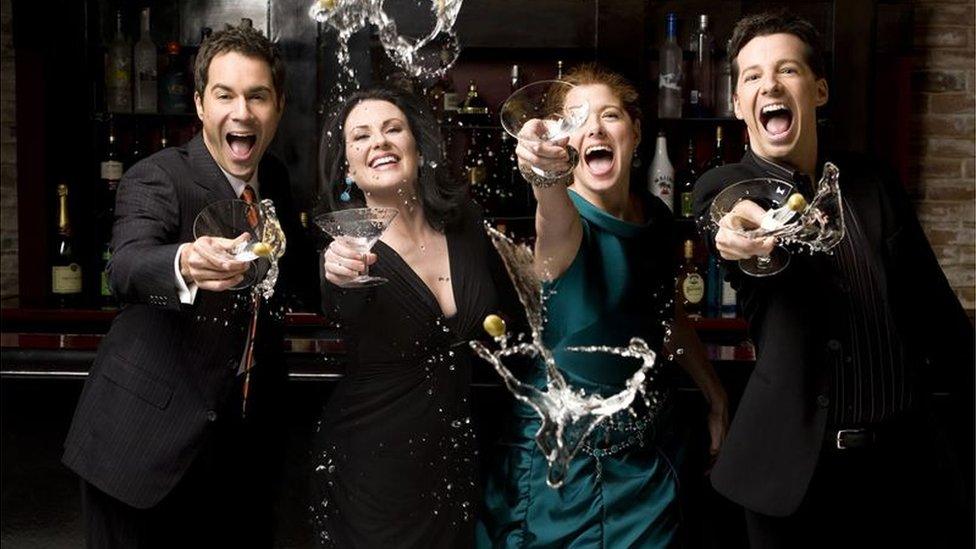
Will & Grace returned to TV screens last year
"The sexism's pretty rampant as well... [and] it's the whitest show in the whole world."
She did acknowledge, however, that "she did sort of love it".
"It's really dangerous to start looking at stuff that was written a long time ago through the lens of what we do now."
Others were less concerned.
Allow X content?
This article contains content provided by X. We ask for your permission before anything is loaded, as they may be using cookies and other technologies. You may want to read X’s cookie policy, external and privacy policy, external before accepting. To view this content choose ‘accept and continue’.
More recent shows have also split opinion, such as Will & Grace.
The show, which debuted in 1998 and was about the lives of a straight woman and her gay best friend, was groundbreaking at a time when you rarely saw gay characters on TV.
But the sitcom, which recently returned to our TV screens, was also criticised for stereotyping., external

Shows that courted controversy
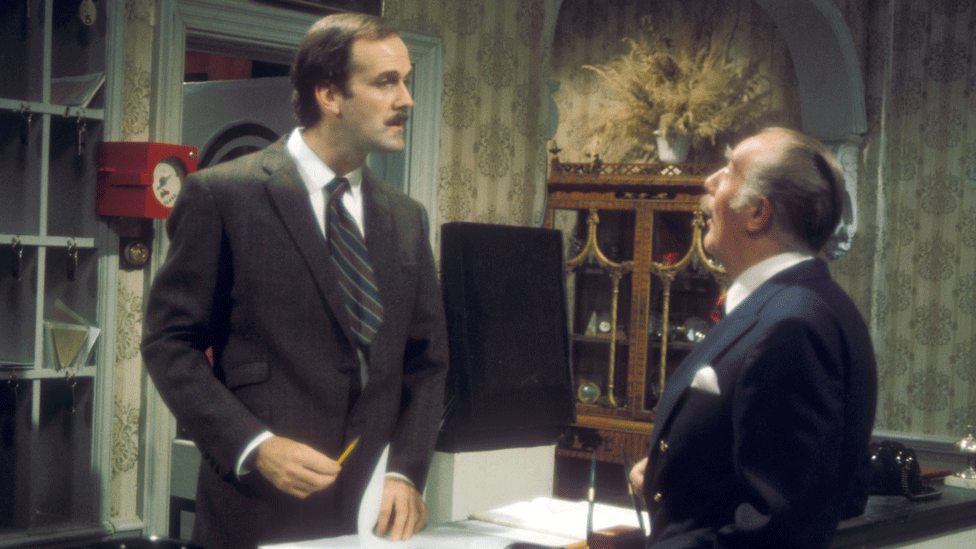
Fawlty Towers is still hugely popular
Fawlty Towers - the 1970s sitcom was based in a rundown hotel in Torquay and starred John Cleese as Basil Fawlty. One of the show's best-known scenes featured Basil's argument with a group of German guests, during which he stresses: "Don't mention the war!" It was recently named the best British sitcom of all time in a survey of comedians and comedy writers and actors. In 2013, the BBC removed a scene from a re-run of an episode in which one of the characters, Major Gowen (Ballard Berkeley), made derogatory marks about the Indian cricket team.
Love Thy Neighbour - this 70s series saw the main black character, Bill Reynolds, called racist names. Reynolds was played by Rudolph Walker, who became the first black actor to have a major part on prime-time television in the UK. He went on to play Patrick Trueman in EastEnders.
It Ain't Half Hot Mum was based on the real experiences of co-creator Jimmy Perry with the Royal Artillery in Burma. Michael Bates, who played bearer Rangi Ram, was not "blacked up" but wore "a light tan", according to Perry, external, who also said telling fictional soldiers that they were "a bunch of poofs" was what Sergeant Majors did in the 1940s. It hasn't been shown since the 1990s.

Baldock said: "The issue is that there are a good many classic programmes that embody values and employ stereotypes that are no longer tolerated in our society [like] It Ain't Half Hot Mum - a programme I watched as a child, without ever once wondering why Michael Bates was covered in make-up.
"People get very twitchy about this now, and with good reason, but that's not in itself [a reason] to 'censor' these programmes - if anything they stand as decent historical archives explaining what the world was like.
He added: "Homophobia, racism and misogyny are not and have never been acceptable [but] if it's 20 years old, why on earth are you surprised if it's different? If it makes you uncomfortable, why on earth are you watching it?"
The Daily Star's TV critic, Mike Ward, agrees.
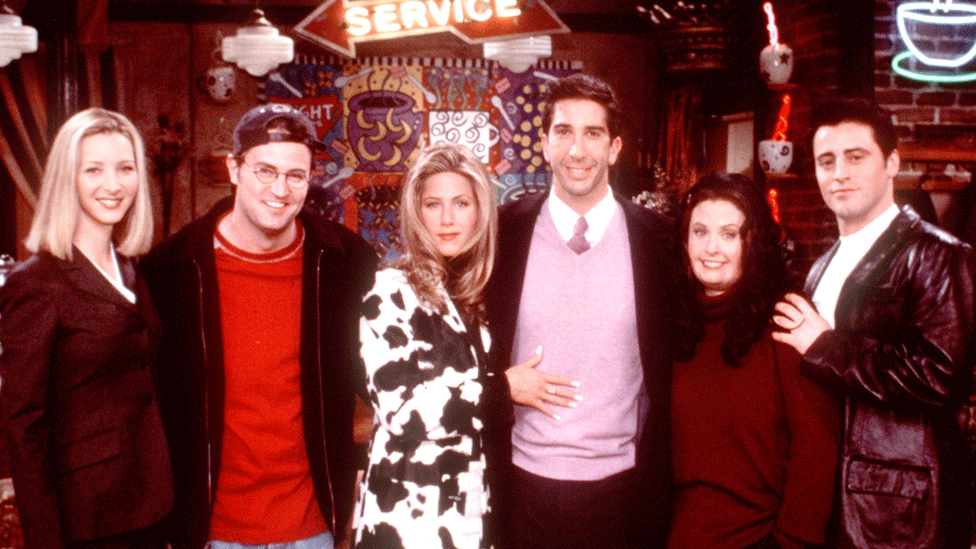
Friends is now running on Netflix
He told the BBC his reaction to the criticism of Friends was "sigh and despair".
"If you take it at face value and apply modern day sensibilities to it and look at it as someone who went out to make it in 2018, you would be shocked.
"We have to be grown up about this, we have to look at perspective and look at the context in which it was made.
"It's fine to say it's uncomfortable by today's standards but if you're not careful you look at the world from an insular, narrow perspective."
Ward says "we're in such a sensitive era now" with comedy.
'Different age'
"Friends has been on Comedy Central for ages, it's not as if someone's just found it and put it out there. I don't think it's caused any major harm. And the characters - by and large we were laughing at their ridiculousness. They're not role models."
Ward adds Fawlty Towers is one of his favourite shows.
"I'm not thinking, 'Wow, I'm laughing at it because it's racist - it's a long, long time ago, it's a different age. I'd like to think we're smart enough not to have to be protected as if things have never been different.
"And there's a bit of arrogance - thinking we're so perfect now. Not that I endorse the old attitudes, but I suspect if you fast forward 50 years into the future you could put people in front of the TV now and people will cringe as we do."

Follow us on Facebook, external, on Twitter @BBCNewsEnts, external, or on Instagram at bbcnewsents, external. If you have a story suggestion email entertainment.news@bbc.co.uk, external.
- Published4 January 2017
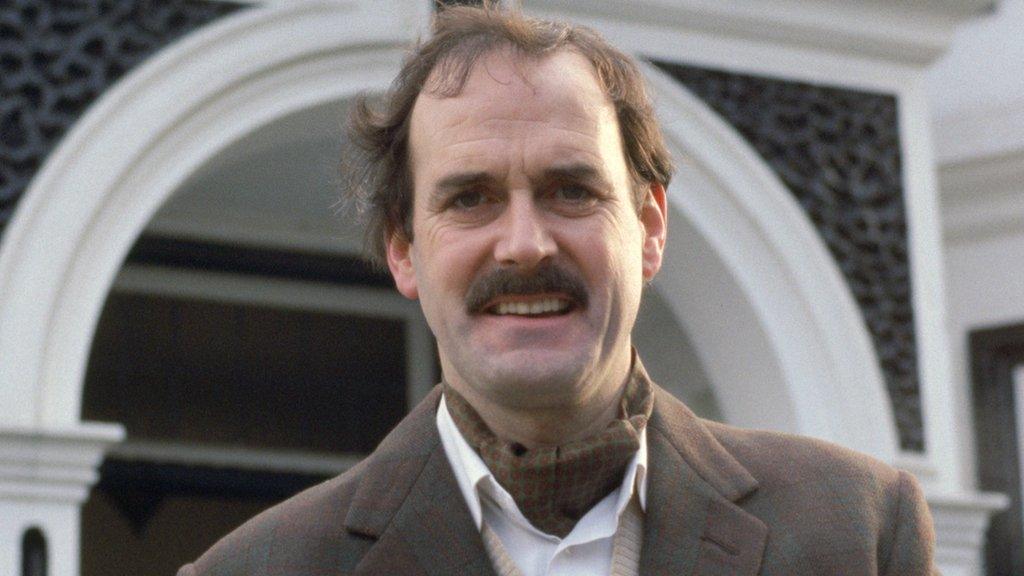
- Published2 January 2018
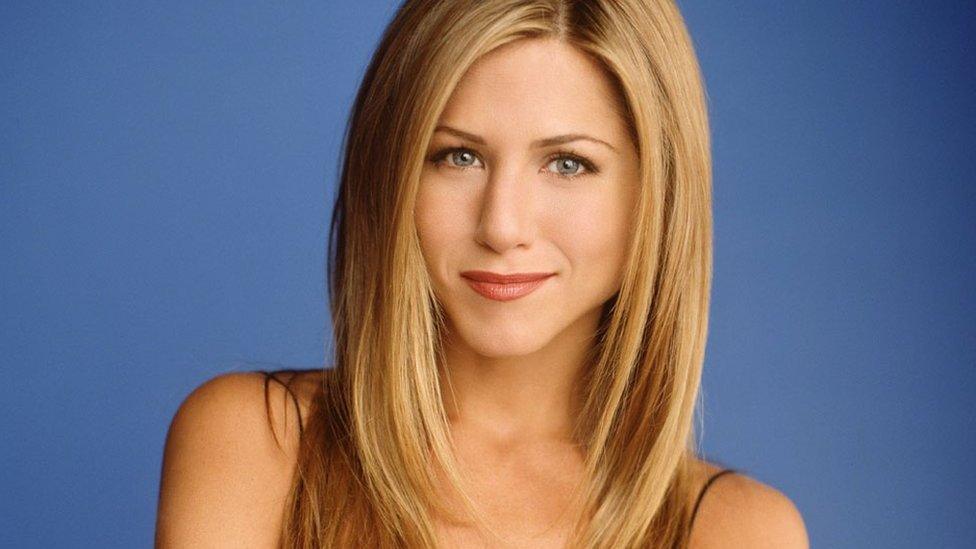
- Published29 September 2017
